Non-clotting factor therapies for preventing bleeds in people with congenital hemophilia A or B
- PMID: 38411279
- PMCID: PMC10897951
- DOI: 10.1002/14651858.CD014544.pub2
Non-clotting factor therapies for preventing bleeds in people with congenital hemophilia A or B
Abstract
Background: Management of congenital hemophilia A and B is by prophylactic or on-demand replacement therapy with clotting factor concentrates. The effects of newer non-clotting factor therapies such as emicizumab, concizumab, marstacimab, and fitusiran compared with existing standards of care are yet to be systematically reviewed.
Objectives: To assess the effects (clinical, economic, patient-reported, and adverse outcomes) of non-clotting factor therapies for preventing bleeding and bleeding-related complications in people with congenital hemophilia A or B compared with prophylaxis with clotting factor therapies, bypassing agents, placebo, or no prophylaxis.
Search methods: We searched the Cochrane Cystic Fibrosis and Genetic Disorders Group's Coagulopathies Trials Register, electronic databases, conference proceedings, and reference lists of relevant articles and reviews. The date of the last search was 16 August 2023.
Selection criteria: Randomized controlled trials (RCTs) evaluating people with congenital hemophilia A or B with and without inhibitors, who were treated with non-clotting factor therapies to prevent bleeds.
Data collection and analysis: Two review authors independently reviewed studies for eligibility, assessed risk of bias, and extracted data for the primary outcomes (bleeding rates, health-related quality of life (HRQoL), adverse events) and secondary outcomes (joint health, pain scores, and economic outcomes). We assessed the mean difference (MD), risk ratio (RR), 95% confidence interval (CI) of effect estimates, and evaluated the certainty of the evidence using GRADE.
Main results: Six RCTs (including 397 males aged 12 to 75 years) were eligible for inclusion. Prophylaxis versus on-demand therapy in people with inhibitors Four trials (189 participants) compared emicizumab, fitusiran, and concizumab with on-demand therapy in people with inhibitors. Prophylaxis using emicizumab likely reduced annualized bleeding rates (ABR) for all bleeds (MD -22.80, 95% CI -37.39 to -8.21), treated bleeds (MD -20.40, 95% CI -35.19 to -5.61), and annualized spontaneous bleeds (MD -15.50, 95% CI -24.06 to -6.94), but did not significantly reduce annualized joint and target joint bleeding rates (AjBR and AtjBR) (1 trial; 53 participants; moderate-certainty evidence). Fitusiran also likely reduced ABR for all bleeds (MD -28.80, 95% CI -40.07 to -17.53), treated bleeds (MD -16.80, 95% CI -25.80 to -7.80), joint bleeds (MD -12.50, 95% CI -19.91 to -5.09), and spontaneous bleeds (MD -14.80, 95% CI -24.90 to -4.71; 1 trial; 57 participants; moderate-certainty evidence). No evidence was available on the effect of bleed prophylaxis using fitusiran versus on-demand therapy on AtjBR. Concizumab may reduce ABR for all bleeds (MD -12.31, 95% CI -19.17 to -5.45), treated bleeds (MD -10.10, 95% CI -17.74 to -2.46), joint bleeds (MD -9.55, 95% CI -13.55 to -5.55), and spontaneous bleeds (MD -11.96, 95% CI -19.89 to -4.03; 2 trials; 78 participants; very low-certainty evidence), but not target joint bleeds (MD -1.00, 95% CI -3.26 to 1.26). Emicizumab prophylaxis resulted in an 11.31-fold increase, fitusiran in a 12.5-fold increase, and concizumab in a 1.59-fold increase in the proportion of participants with no bleeds. HRQoL measured using the Haemophilia Quality of Life Questionnaire for Adults (Haem-A-QoL) physical and total health scores was improved with emicizumab, fitusiran, and concizumab prophylaxis (low-certainty evidence). Non-serious adverse events were higher with non-clotting factor therapies versus on-demand therapy, with injection site reactions being the most frequently reported adverse events. Transient antidrug antibodies were reported for fitusiran and concizumab. Prophylaxis versus on-demand therapy in people without inhibitors Two trials (208 participants) compared emicizumab and fitusiran with on-demand therapy in people without inhibitors. One trial assessed two doses of emicizumab (1.5 mg/kg weekly and 3.0 mg/kg bi-weekly). Fitusiran 80 mg monthly, emicizumab 1.5 mg/kg/week, and emicizumab 3.0 mg/kg bi-weekly all likely resulted in a large reduction in ABR for all bleeds, all treated bleeds, and joint bleeds. AtjBR was not reduced with either of the emicizumab dosing regimens. The effect of fitusiran prophylaxis on target joint bleeds was not assessed. Spontaneous bleeds were likely reduced with fitusiran (MD -20.21, 95% CI -32.12 to -8.30) and emicizumab 3.0 mg/kg bi-weekly (MD -15.30, 95% CI -30.46 to -0.14), but not with emicizumab 1.5 mg/kg/week (MD -14.60, 95% CI -29.78 to 0.58). The percentage of participants with zero bleeds was higher following emicizumab 1.5 mg/kg/week (50% versus 0%), emicizumab 3.0 mg/kg bi-weekly (40% versus 0%), and fitusiran prophylaxis (40% versus 5%) compared with on-demand therapy. Emicizumab 1.5 mg/kg/week did not improve Haem-A-QoL physical and total health scores, EQ-5D-5L VAS, or utility index scores (low-certainty evidence) when compared with on-demand therapy at 25 weeks. Emicizumab 3.0 mg/kg bi-weekly may improve HRQoL measured by the Haem-A-QoL physical health score (MD -15.97, 95% CI -29.14 to -2.80) and EQ-5D-5L VAS (MD 9.15, 95% CI 2.05 to 16.25; 1 trial; 43 participants; low-certainty evidence). Fitusiran may result in improved HRQoL shown as a reduction in Haem-A-QoL total score (MD -7.06, 95% CI -11.50 to -2.62) and physical health score (MD -19.75, 95% CI -25.76 to -11.94; 1 trial; 103 participants; low-certainty evidence). The risk of serious adverse events in participants without inhibitors also likely did not differ following prophylaxis with either emicizumab or fitusiran versus on-demand therapy (moderate-certainty evidence). Transient antidrug antibodies were reported in 4% (3/80) participants to fitusiran, with no observed effect on antithrombin lowering. A comparison of the different dosing regimens of emicizumab identified no differences in bleeding, safety, or patient-reported outcomes. No case of treatment-related cancer or mortality was reported in any study group. None of the included studies assessed our secondary outcomes of joint health, clinical joint function, and economic outcomes. None of the included studies evaluated marstacimab.
Authors' conclusions: Evidence from RCTs shows that prophylaxis using non-clotting factor therapies compared with on-demand treatment may reduce bleeding events, increase the percentage of individuals with zero bleeds, increase the incidence of non-serious adverse events, and improve HRQoL. Comparative assessments with other prophylaxis regimens, assessment of long-term joint outcomes, and assessment of economic outcomes will improve evidence-based decision-making for the use of these therapies in bleed prevention.
Copyright © 2024 The Cochrane Collaboration. Published by John Wiley & Sons, Ltd.
Conflict of interest statement
Omotola Olasupo: no relevant conflict of interest.
Noella Noronha: no relevant conflict of interest.
Megan Lowe: no relevant conflict of interest.
Derek Ansel: no relevant conflict of interest.
Mihir Bhatt: no relevant conflict of interest.
Davide Matino: reports research grants paid directly to the Institution from Bayer, Pfizer, Novo Nordisk, Sanofi, Spark, Octapharma; personal fees outside the submitted work from Sanofi, Sobi, Novo Nordisk, Bayer, Pfizer, Octapharma for participation in advisory boards, lectures, and preparation of educational material.
Figures
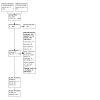
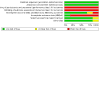

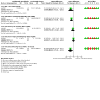
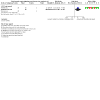
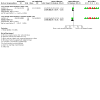
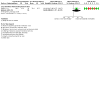
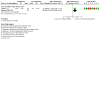
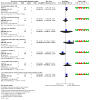
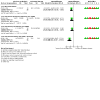
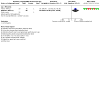
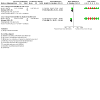
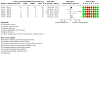
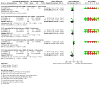
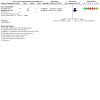
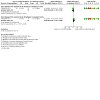
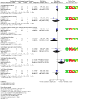
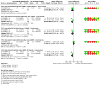
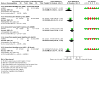
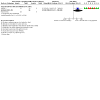
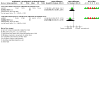
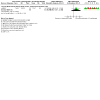
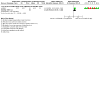
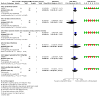
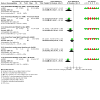
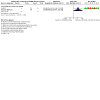
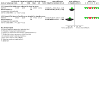
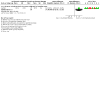
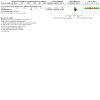
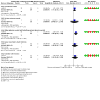

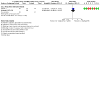
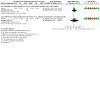
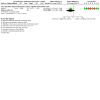
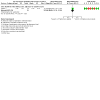
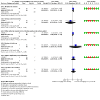
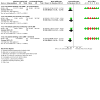
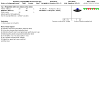
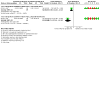

Update of
References
References to studies included in this review
ATLAS ‐ A/B {published data only}
-
- CTRI/2018/07/014698. A phase 3 study to evaluate the efficacy and safety of fitusiran in patients with hemophilia A or B, without inhibitory antibodies to factor VIII or IX [ATLAS-A/B: A Phase 3 Study to Evaluate the Efficacy and Safety of Fitusiran in Patients With Hemophilia A or B, Without Inhibitory Antibodies to Factor VIII or IX]. trialsearch.who.int/Trial2.aspx?TrialID=CTRI/2018/07/014698 (first received 2 Jul 2018).
-
- EUCTR2016-001464-11-IE. A study of fitusiran (ALN-AT3SC) in hemophilia A and B patients without inhibitors. trialsearch.who.int/Trial2.aspx?TrialID=EUCTR2016-001464-11-IE (first received 5 Jul 2017). [CFGD REGISTER: HG135c]
-
- EUCTR2016-001464-11-NL. A study of fitusiran (ALN-AT3SC) in hemophilia A and B patients without inhibitors. trialsearch.who.int/Trial2.aspx?TrialID=EUCTR2016-001464-11-NL (first received 6 Jun 2018). [CFGD REGISTER: HG135b]
-
- NCT03417245. A study of fitusiran (ALN-AT3SC) in severe hemophilia a and b patients without inhibitors. clinicaltrials.gov/show/NCT03417245 (first received 31 Jan 2018). [CFGD REGISTER: HG135a]
-
- Srivastava A, Rangarajan S, Kavakli K, Klamroth R, Kenet G, Khoo L, et al. Fitusiran prophylaxis in people with severe haemophilia A or haemophilia B without inhibitors (ATLAS-A/B): a multicentre, open-label, randomised, phase 3 trial. Lancet Haematology 2023;10(5):e322-e332. [DOI: 10.1016/S2352-3026(23)00037-6] [PMID: ] - DOI - PubMed
ATLAS ‐ INH {published data only}
-
- CTRI/2018/06/014682. A Phase 3 study to Evaluate the Efficacy and Safety of Fitusiran in Patients with Hemophilia A or B, with Inhibitory Antibodies to Factor VIII or IX [ATLAS-INH: A Phase 3 Study to Evaluate the Efficacy and Safety of Fitusiran in Patients with Hemophilia A or B, with Inhibitory Antibodies to Factor VIII or IX]. trialsearch.who.int/Trial2.aspx?TrialID=CTRI/2018/06/014682 (first received 29 Jun 2018).
-
- EUCTR2016-001463-36-BG. A Study of fitusiran (ALN-AT3SC) in hemophilia A and B patients with inhibitors. trialsearch.who.int/Trial2.aspx?TrialID=EUCTR2016-001463-36-BG (first received 6 Jul 2017). [CFGD REGISTER: HG136b]
-
- NCT03417102. A study of fitusiran (ALN-AT3SC) in severe hemophilia a and b patients with inhibitors. clinicaltrials.gov/ct2/show/NCT03417102 (first received 31 Jan 2018). [CFGD REGISTER: HG136a]
-
- Young G, Srivastava A, Kavakli K, Ross C, Sathar J, You CW, et al. Efficacy and safety of fitusiran prophylaxis in people with haemophilia A or haemophilia B with inhibitors (ATLAS-INH): a multicentre, open-label, randomised phase 3 trial. Lancet 2023;401(10386):1427-1437. [DOI: 10.1016/S0140-6736(23)00284-2] [PMID: ] - DOI - PubMed
EXPLORER 4 {published data only}
-
- Astermark J, Angchaisuksiri P, Benson G, Castaman G, Chowdary P, Eichler H, et al. Longer-term efficacy and safety of concizumab prophylaxis in hemophilia A and hemophilia A/B with inhibitors: Results from the main and extension parts of concizumab phase 2 trials. In: Research and Practice in Thrombosis and Haemostasis. Vol. 5. 2021. [DOI: ]
-
- Astermark J, Angchaisuksiri P, Benson G, Castaman G, Chowdary P, Eichler H, et al. Subcutaneous prophylaxis with the anti-TFPI monoclonal antibody concizumab in hemophilia A and hemophilia A/B with inhibitors: Phase 2 trial results. Research and Practice in Thrombosis and Haemostasis 2019;3(Supplement 2):1. [DOI: ]
-
- Astermark J, Angchaisuksiri P, Benson G, Castaman G, Chowdary P, Eichler H, et al. Subcutaneous prophylaxis with the anti-TFPI monoclonal antibody concizumab in hemophilia A and hemophilia A/B with inhibitors: phase 2 trial results. Research and Practice in Thrombosis and Haemostasis 2019;3(Suppl 2):1. [CFGD REGISTER: HG119c]
-
- EUCTR2016-000510-30-ES. A trial evaluating the efficacy and safety of prophylactic administration of concizumab in haemophilia a and b patients with inhibitors. trialsearch.who.int/Trial2.aspx?TrialID=EUCTR2016-000510-30-ES (first received 4 Jul 2017). [CFGD REGISTER: HG119b]
-
- Faller M, Toonder SM, Porstmann T. Improvement in health-related quality of life measures after long-term, daily, subcutaneous concizumab prophylaxis in patients with hemophilia a/b with and without inhibitors: Results from the main and extension parts of phase 2 clinical trials. Blood 2021;138(Suppl 1):1041. [DOI: 10.1182/blood-2021-152257] - DOI
EXPLORER 7 {published data only}
-
- Hampton K, Knoebl P, Neergaard JS, Odgaard-Jensen J, Stasyshyn O, Thaung Zaw JJ, et al. Treatment burden and patient preference in patients with haemophilia A or B with inhibitors on concizumab prophylaxis: results from the phase 3 EXPLORER 7 study. Haemophilia 2023;29(Supplement 1):77-78. [DOI: ]
-
- Kaushik C, Jimenez-Yuste V, Angchaisuksiri P, Castaman G, Cepo K, Haaning J, et al. Concizumab Prophylaxis in Patients with Haemophilia A or B with Inhibitors: Efficacy and Safety Results from the Primary Analysis of the Phase 3 EXPLORER7 Trial. Indian Journal of Hematology and Blood Transfusion 2022;38(Supplement 1):S3. [DOI: ]
-
- Linari S, Shapiro A, Neergaard JS, Odgaard-Jensen J, Thaung Zaw JJ, Tran H. Health-related quality of life in patients with haemophilia A or B with inhibitors on concizumab prophylaxis: results from the phase 3 EXPLORER 7 study. Haemophilia 2023;29(Supplement 1):94-95. [DOI: ]
-
- Mathias M, Cepo K, D'Oiron R, Frei-Jones M, Goh A-S, Odgaard-Jensen J. Subcutaneous concizumab prophylaxis in patients with haemophilia A or B with inhibitors: efficacy and safety results by haemophilia subtype from the EXPLORER t trial. Haemophilia 2023;29(Supplement 1):17. [DOI: ]
HAVEN 1 {published data only}
-
- Adamkewicz JI, Schmitt C, Asikanius E, Xu J, Levy G, Kim B, et al. Factor VIII (FVIII) inhibitor testing using a validated chromogenic bethesda assay (CBA) in HAVEN 1 (BH29884), a Phase 3 trial of emicizumab in persons with hemophilia a (PwHA) with inhibitors. Research and Practice in Thrombosis and Haemostasis 2017;1(Supplement 1):724-5. [CFGD REGISTER: HA149l]
-
- Callaghan M, Negrier C, Young G, Khoo L, Mahlangu J, Windyga J, et al. Use of bypassing agents prior to and post bypassing agent dosing guidance during emicizumab prophylaxis: Analyses from the haven 1 study. British Journal of Haematology 2018;181(Supplement 1):129. [CFGD REGISTER: HA149d]
-
- Callaghan M, Negrier C, Young G, Khoo L, Mahlangu J, Windyga J, et al. Use of bypassing agents prior to and post bypassing agent dosing guidance during emicizumab prophylaxis: analyses from the haven 1 study. British Journal of Haematology 2018;181:129. [DOI: 10.1111/bjh.15226] - DOI
-
- Callaghan MU, Negrier C, Paz-Priel I, Chang T, Chebon S, Lehle M, et al. Long-term outcomes with emicizumab prophylaxis for hemophilia A with or without FVIII inhibitors from the HAVEN 1-4 studies. Blood 2021;137(16):2231-42. [CFGD REGISTER: HA149s // HA150m] [DOI: 10.1182/blood.2020009217] - DOI - PMC - PubMed
-
- Callaghan MU, Negrier C, Paz-Priel I, Chang T, Chebon S, Lehle M, et al. Safety and efficacy of emicizumab in persons with haemophilia a with/without FVIII inhibitors: pooled data from four phase III studies (Haven 1-4). Haemophilia 2021;27(Suppl 2):126-7. [CFGD REGISTER: HA149r // HA150l]
HAVEN 3 {published data only}
-
- Callaghan M, Trzaskoma B, Ko RH, Lee L, Patel AM, Tzeng E, et al. Factor VIII use in the treatment of breakthrough bleeds in hemophilia A patients without inhibitors on emicizumab prophylaxis: the phase 3 haven 3 study experience. Blood 2019;134(Suppl 1):2395. [CFGD REGISTER: HA150j]
-
- Callaghan MU, Negrier C, Paz-Priel I, Chang T, Chebon S, Lehle M, et al. Safety and efficacy of emicizumab in persons with haemophilia a with/without FVIII inhibitors: pooled data from four phase III studies (Haven 1-4). Haemophilia 2021;27(Suppl 2):126-7. [CFGD REGISTER: HA149r // HA150l]
-
- Callaghan MU, Negrier C, Paz-Priel I, Chang T, Chebon S, Lehle M, et al. Safety and efficacy of emicizumab in persons with hemophilia a with or without fviii inhibitors: pooled data from four phase iii studies (haven 1-4). Blood 2020;136(SUPPL 1):3-5. [CFGD REGISTER: HA149q // HA150k]
-
- EUCTR2016-000072-17-ES. A Study to Evaluate the Effectiveness and Safety of Prophylactic Emicizumab Versus no Prophylaxis in Haemophilia A Patients Without Inhibitors. EUCTR 2016.
References to studies excluded from this review
Agers 2014 {published data only}
-
- Agersø H, Overgaard RV, Petersen MB, Hansen L, Hermit MB, Sørensen MH, et al. Pharmacokinetics of an anti-TFPI monoclonal antibody (concizumab) blocking the TFPI interaction with the active site of FXa in Cynomolgus monkeys after iv and sc administration. European Journal of Pharmaceutical Sciences 2014;56:65-9. [DOI: 10.1016/j.ejps.2014.02.009] - DOI - PubMed
AKATSUKI {published data only}
-
- JPRN-jRCTs041200037. AKATSUKI Study [A prospective, multicenter study to evaluate the safety of emicizumab under and after immune tolerance induction in patients with congenital hemophilia A with FVIII inhibitors]. trialsearch.who.int/Trial2.aspx?TrialID=JPRN-jRCTs041200037 (registered 3 Aug 2020).
Aledort 2017 {published data only}
Aledort 2019 {published data only}
Aledort 2020 {published data only}
-
- Aledort LM. Emicizumab prophylaxis in hemophilia A with inhibitors. New England Journal of Medicine 2020;382(8):786. [DOI: ] - PubMed
A‐LONG 2011 {published data only}
-
- CTRI/2011/11/002103. Study to evaluate the safety, pharmacokinetics and efficacy of recombinant factor VIII Fc fusion protein (rFVIIIFc) in subjects with severe hemophilia A [An open-label, multicenter evaluation of the safety, pharmacokinetics, and efficacy of recombinant factor VIII Fc fusion protein (rFVIIIFc) in the prevention and treatment of bleeding in previously treated subjects with severe hemophilia A - A LONG]. trialsearch.who.int/Trial2.aspx?TrialID=CTRI/2011/11/002103 (registered 2 Nov 2011).
-
- Klamroth R, Wojciechowski P, Aballéa S, Diamand F, Hakimi Z, Nazir J, et al. Efficacy of rFVIIIFc versus emicizumab for the treatment of patients with Hemophilia A without Inhibitors: matching-adjusted indirect comparison of A-LONG and HAVEN trials. Journal of Blood Medicine 2021;12:115-22. [DOI: 10.2147/jbm.S288283] - DOI - PMC - PubMed
ATLAS ‐ PPX {published data only}
-
- NCT03549871. A study of fitusiran in severe hemophilia A and B patients previously receiving factor or bypassing agent prophylaxis (ATLAS-PPX). clinicaltrials.gov/ct2/show/NCT03549871 (first posted 18 Jun 2018).
Barg 2019 {published data only}
Barg 2020 {published data only}
Barg 2021 {published data only}
Batsuli 2019 {published data only}
Benton 2019 {published data only}
-
- Benton M, Shi L, Patel AM, Monnette A, Hong D, Thielmann H, et al. Evaluating patient and caregiver treatment preferences in hemophilia A using a discrete choice experiment. RPTH 2019;3:270-271. [DOI: 10.1002/rth2.12229] - DOI
Bertolet 2020a {published data only}
-
- NCT04303559. The hemophilia inhibitor prevention trial. www.clinicaltrials.gov/show/NCT04303559 (first posted 11 Mar 2020). [CFGD REGISTER: HA160a]
Bertolet 2020b {published data only}
-
- NCT04303572. The hemophilia inhibitor eradication trial. www.clinicaltrials.gov/show/NCT04303572 (first posted 11 Mar 2020).
Beyond ABR {published data only}
-
- NCT05181618. A study to evaluate overall health, physical activity, and joint outcomes in participants with severe or moderate hemophilia A without Factor VIII inhibitors on emicizumab prophylaxis (Beyond ABR). clinicaltrials.gov/study/NCT05181618 (first received 6 December 2021).
Biron‐Andreani 2020 {published data only}
-
- Biron-Andreani C, Diaz-Cau I, Ranc A, Navarro R, Leonardi C, Dischino M, et al. Major surgery management in patients with haemophilia A and inhibitors on emicizumab prophylaxis without global coagulation monitoring. British Journal of Haematology 2020;1(3):e100-e103. [DOI: 10.1111/bjh.16512] - DOI - PubMed
Blair 2019 {published data only}
Brophy 2019 {published data only}
Brown 2020 {published data only}
Buckner 2020 {published data only}
Bukkems 2021 {published data only}
B‐YOND {published data only}
-
- CTRI/2012/05/002708. To study the long-term safety and efficacy of recombinant human coagulation factor IX fusion protein (rFIXFc) in haemophilia B patients [An open-label, multicenter evaluation of the long-term safety and efficacy of recombinant human coagulation factor IX fusion protein (rFIXFc) in the prevention and treatment of bleeding episodes in previously treated subjects with haemophilia B - B-YOND]. trialsearch.who.int/Trial2.aspx?TrialID=CTRI/2012/05/002708 (registered 30 May 2012).
Cafuir 2019 {published data only}
Callaghan 2018 {published data only}
-
- Callaghan MU, Kuebler PJ, Gao L, Ko RH, Devenport J, Liberman M. Characterization of the impact of prior ITI on patient outcomes in HAVEN1. American Journal of Hematology 2018;93(9):E10‐E11. [DOI: 10.1002/ajh.25268] - DOI
Cardinal 2018 {published data only}
-
- Cardinal M, Kantaridis C, Zhu T, Sun P, Pittman DD, Murphy JE, et al. A first-in-human study of the safety, tolerability, pharmacokinetics and pharmacodynamics of PF-06741086, an anti-tissue factor pathway inhibitor mAb, in healthy volunteers. Journal of Thrombosis and Haemostasis 2018;16(9):1722-31. [DOI: 10.1111/jth.14207] - DOI - PubMed
Chowdary 2015 {published data only}
-
- Chowdary P, Friedrich U, Lethagen S, Angchaisuksiri P. A new treatment concept for haemophilia: safety, pharmacokinetics and pharmacodynamics of single i.v. and s.c. doses of a monoclonal anti-TFPI antibody in healthy males and haemophilia subjects. Journal of Thrombosis and Haemostasis 2013;11 Suppl 2:460. [ABSTRACT NO.: PA4.07-5] [CFGD REGISTER: HG86b]
-
- Chowdary P, Lethagen S, Friedrich U, Brand B, Hay C, Karim FA, et al. Safety and pharmacokinetics of anti-TFPI antibody (concizumab) in healthy volunteers and patients with hemophilia: a randomized first human dose trial. Journal of Thrombosis and Haemostasis 2015;13(5):743-54. [CFGD REGISTER: HG86a] - PubMed
Cortesi 2020 {published data only}
CTRI201106001832 {published data only}
-
- CTRI/2011/06/001832. A clinical trial to study the effects of IB1001 in previously treated patients children with hemophilia B [Study of recombinant factor IX product, IB1001, in previously treated pediatric subject with hemophilia BÂ - NIL]. trialsearch.who.int/Trial2.aspx?TrialID=CTRI/2011/06/001832 (registered 24 Jun 2011).
CTRI201204002596 {published data only}
-
- CTRI/2012/04/002596. A clinical trial to see the effect of EMOCLOT drug (Kedrion factor VIII concentrate) in 50 previously treated haemophilia A children [Open label, phase III, multicenter study on pharmacokinetic, efficacy and safety evaluation of Kedrion Factor VIII concentrate (EMOCLOT) in 50 previously treated haemophilia A children]. trialsearch.who.int/Trial2.aspx?TrialID=CTRI/2012/04/002596 (first registered 24 Apr 2012).
CTRI201307003823 {published data only}
-
- CTRI/2013/07/003823. A clinical trial to study the effect of an unregistered drug in hemophilia B patients [BAX326 (Recombinant Factor IX): evaluation of safety, immunogenicity, and hemostatic efficacy in previously treated patients with severe (FIX level 1%) or moderately severe (FIX level â?¤ 2%) hemophilia B â?? A continuation study]. trialsearch.who.int/Trial2.aspx?TrialID=CTRI/2013/07/003823 (registered 19 Jul 2013).
CTRI201807014754 {published data only}
-
- CTRI/2018/07/014754. A post-marketing study receiving RIXUBIS as on-demand or prophylaxis under standard clinical practice in patients with Hemophilia B [Phase IV Multi-center, Prospective, Interventional, Post-marketing study in Hemophilia B Patients in India receiving RIXUBIS as on-demand or Prophylaxis under standard clinical practice - None]. trialsearch.who.int/Trial2.aspx?TrialID=CTRI/2018/07/014754 (registered 5 Jul 2018).
Donners 2021 {published data only}
Ebbert 2020 {published data only}
Eichler 2018 {published data only}
-
- Eichler H, Angchaisuksiri P, Kavakli K, Knoebl P, Windyga J, Jimenez-Yuste V, et al. A randomized trial of safety, pharmacokinetics and pharmacodynamics of concizumab in people with hemophilia A. Journal of Thrombosis and Haemostasis 2018;16(11):2184-95. [HG120b] - PubMed
-
- Eichler H, Angchaisuksiri P, Kavakli K, Knoebl P, Windyga J, Jimenez-Yuste V, et al. Evaluation of safety and establishment of a PK/PD relationship of concizumab in hemophilia a patients. Research and Practice in Thrombosis and Haemostasis 2017;1(Suppl 2):1-2. [CFGD REGISTER: HG120c]
-
- NCT02490787. Trial investigating safety, pharmacokinetics and pharmacodynamics of concizumab administered subcutaneously to haemophilia a subjects. www.clinicaltrials.gov/show/NCT02490787 (first posted 7 Jul 2015). [CFGD REGISTER: HG120a]
Explorer 5 {published data only}
-
- TCTR20170512002. A multi-centre trial evaluating efficacy and safety of prophylactic administration of concizumab in patients with severe haemophilia A without inhibitors [Explorer 5]. trialsearch.who.int/Trial2.aspx?TrialID=TCTR20170512002 (registered 12 May 2017).
Fontana 2020 {published data only}
Franchini 2018 {published data only}
Franchini 2019 {published data only}
Franchini 2020 {published data only}
FRONTIER1 {published data only}
-
- EUCTR2019-000465-20-ES. A research study of how a new medicine NNC0365-3769 (Mim8) works in the body of healthy people and patients with bleeding disorder. trialsearch.who.int/Trial2.aspx?TrialID=EUCTR2019-000465-20-ES (registered 28 Feb 2020). [CFGD REGISTER: HA140b]
-
- NCT04204408. A research study investigating mim8 in people with haemophilia a. www.clinicaltrials.gov/show/NCT04204408 (first posted 19 Dec 2019). [CFGD REGISTER: HA140a]
Hassan 2021 {published data only}
HAVEN 2 {published data only}
-
- NCT02795767. A study of emicizumab administered subcutaneously (SC) in pediatric participants with hemophilia A and Factor VIII (FVIII) inhibitors. clinicaltrials.gov/study/NCT02795767 (first received 7 June 2016).
HAVEN 4 {published data only}
-
- JapicCTI-163391. Phase III clinical study of emicizumab given every 4 weeks (Q4W) in patients with hemophilia A. trialsearch.who.int/Trial2.aspx?TrialID=JPRN-JapicCTI-163391 (registered 30 Sep 2016). [CFGD REGISTER: HA167]
-
- Jimenez-Yuste V, Shima M, Paz-Priel I, Parnes A, Lehle M, Giermasz A, et al. Preference for emicizumab over prior factor treatments: results from the HAVEN 3 and HAVEN 4 studies. Blood 2018;132(Suppl 1):1187.
-
- Klamroth R, Wojciechowski P, Aballéa S, Diamand F, Hakimi Z, Nazir J, et al. Efficacy of rFVIIIFc versus emicizumab for the treatment of patients with hemophilia A without inhibitors: matching-adjusted indirect comparison of A-LONG and HAVEN trials. Journal of Blood Medicine 2021;12:115-22. [DOI: 10.2147/jbm.S288283] - DOI - PMC - PubMed
-
- Pipe SW, Shima M, Lehle M, Shapiro A, Chebon S, Fukutake K, et al. Efficacy, safety, and pharmacokinetics of emicizumab prophylaxis given every 4 weeks in people with haemophilia A (HAVEN 4): a multicentre, open-label, non-randomised phase 3 study. Lancet Haematology 2019;1(6):e295-e305. [DOI: 10.1016/S2352-3026(19)30054-7] - DOI - PubMed
-
- Skinner M, Negrier C, Paz-Priel I, Chebon S, Jimenez-Yuste V, Callaghan M, et al. Emicizumab prophylaxis improves long-term physical health scores in persons with haemophilia A (PWHA) with and without inhibitors: update from the haven 3 and haven 4 studies. Research and Practice in Thrombosis and Haemostasis 2019;3:328-9.
HAVEN 6 {published data only}
-
- Negrier C, Mahlangu J, Lehle M, Chowdary P, Catalani O, Jimenez-Yuste V, et al. Emicizumab prophylaxis in persons with mild or moderate hemophilia A: results from the interim analysis of the HAVEN 6 study. Blood 2021;138(Suppl 1):343. [DOI: 10.1182/blood-2021-146009] - DOI
Hilden 2012 {published data only}
ISRCTN57549638 {published data only}
-
- ISRCTN57549638. Prevention of bleeding in haemophilia A by prophylactic treatment with Nuwiq® [Prevention of bleeding in haemophilia A by prophylactic treatment with Nuwiq®: a prospective, multi-national, non-interventional study to evaluate routine practice prophylactic treatment schedules – NIS-Previq]. trialsearch.who.int/Trial2.aspx?TrialID=ISRCTN57549638 (registered 23 Mar 2015).
JapicCTI‐173710 {published data only}
-
- JPRN-JapicCTI-173710. Phase III clinical trial of emicizumab given every 2 weeks and 4 weeks in hemophilia A pediatric patients without inhibitors (HOHOEMI). https://jrct.niph.go.jp/latest-detail/jRCT2080223654 (first received September 12, 2017).
Klamroth 2021 {published data only}
-
- Klamroth R, Wojciechowski P, Aballéa S, Diamand F, Hakimi Z, Nazir J, et al. Efficacy of rFVIIIFc versus emicizumab for the treatment of patients with Hemophilia A without Inhibitors: matching-adjusted indirect comparison of A-LONG and HAVEN trials. Journal of Blood Medicine 2021;12:115-22. [DOI: 10.2147/jbm.S288283] - DOI - PMC - PubMed
Krumb 2021 {published data only}
Kruse‐Jarres 2020 {published data only}
Kruse‐Jarres 2022 {published data only}
Lee 2021 {published data only}
Le Quellec 2020 {published data only}
Levy‐Mendelovich 2020 {published data only}
Lewandowska 2021 {published data only}
-
- Lewandowska M, Randall N, Bakeer N, Maahs J, Sagar J, Greist A, et al. Management of people with haemophilia A undergoing surgery while receiving emicizumab prophylaxis: Real-world experience from a large comprehensive treatment centre in the US. Haemophilia 2021;27(1):90-9. [DOI: 10.1111/hae.14212] - DOI - PMC - PubMed
Machin 2018 {published data only}
Mahlangu 2019 {published data only}
Mahlangu 2023 {published data only}
-
- Mahlangu J, Luis Lamas J, Cristobal Morales J, Malan DR, Teeter J, Charnigo RJ, et al. Long-term safety and efficacy of the anti-tissue factor pathway inhibitor marstacimab in participants with severe haemophilia: Phase II study results. British Journal of Haematology 2023;200(2):1470-1477. [DOI: 10.1111/jth.14491] - DOI - PMC - PubMed
McCary 2020 {published data only}
-
- McCary I, Guelcher C, Kuhn J, Butler R, Massey G, Guerrera MF, et al. Real-world use of emicizumab in patients with haemophilia A: bleeding outcomes and surgical procedures. Haemophilia 2020;26(4):631-6. - PubMed
Misgav 2021 {published data only}
NCT04030052 {published data only}
-
- NCT04030052. Emicizumab PUPs and Nuwiq ITI Study. https://clinicaltrials.gov/study/NCT04030052 (first received 23 July 2019).
NCT05935358 {published data only}
-
- NCT05935358. Nuwiq for Perioperative Management Of Patients With Haemophilia A on Emicizumab Regular Prophylaxis Study (NuPOWER). https://clinicaltrials.gov/study/NCT05935358 (first received 7 July 2023).
Nogami 2016 {published data only}
Nogami 2017 {published data only}
-
- Nogami, K, Taki, M, Matsushita, T, Sato, T, Fukutake, K, Kasai, R, Yoneyama, K, Yoshida, H, Shima, M. Updated results of a long-term phase 1/2 study of emicizumab (ACE910) in haemophilia A patients. British Journal of Haematology 2017;176(Suppl 1):112. [DOI: 10.1111/bjh.14613] [PMID: ] - DOI - PubMed
Nogami 2019 {published data only}
Pasi 2021 {published data only}
-
- Chowdary P, Georgiev P, Mant T, Creagh MD, Lissitchkov T, Bevan D, et al. Phase 1 and phase 1/2 extension study of fitusiran, an investigational RNAi therapeutic targeting antithrombin for the treatment of hemophilia: updated results in patients without inhibitors. Haemophilia 2017;23(Suppl 2):118-9. [CFGD REGISTER: HG103a]
-
- NCT02035605. A phase 1 study of an investigational drug, ALN-AT3SC, in healthy volunteers and hemophilia a or b patients. www.clinicaltrials.gov/show/NCT02035605 (first posted 14 Jan 2014). [CFGD REGISTER: HG103e]
-
- Pasi KJ, Georgiev P, Mant T, Creagh MD, Issitchkov TL, Bevan D, et al. A subcutaneously administered investigational RNAi therapeutic, fitusiran (ALN-AT3), targeting antithrombin for treatment of hemophilia: interim results in patients with hemophilia a or b. Haemophilia 2016;22:76. [CFGD REGISTER: HG103c]
-
- Pasi KJ, Georgiev P, Mant T, Creagh MD, Lissitchkov T, Bevan D, et al. A subcutaneously administered investigational RNAi therapeutic (ALN-AT3) targeting antithrombin for treatment of hemophilia: interim weekly and monthly dosing results in patients with hemophilia a or b. Blood 2015;126(23):551. [CFGD REGISTER: HG103h]
-
- Pasi KJ, Georgiev P, Mant T, Creagh MD, Lissitchkov T, Bevan D, et al. Phase 1 and phase 1/2 extension study of fitusiran, an investigational RNAi therapeutic targeting antithrombin for the treatment of hemophilia: updated results in patients with inhibitors. Haemophilia 2017;23 Suppl 2:88-9. [CFGD REGISTER: HG103b]
Patel 2019 {published data only}
-
- Patel A, Corman S, Chaplin S, Raimundo K, Sidonio R. Economic impact model of delayed factor viii inhibitor development in persons with hemophilia a receiving emicizumab for the prevention of bleeding events. Journal of Managed Care & Specialty Pharmacy 2018 ;24:10-a Suppl:S1-S112. [DOI: 10.18553/jmcp.2018.24.10-a.s1] - DOI
-
- Patel AM, Corman SL, Chaplin S, Raimundo K, Sidonio RF. Economic impact model of delayed inhibitor development in patients with hemophilia a receiving emicizumab for the prevention of bleeding events. Journal of Medical Economics 2019;1(12):1328-37. - PubMed
Pierce 2019 {published data only}
Polack 2021 {published data only}
PRIORITY {published data only}
-
- NCT04621916. Preventing inhibitor recurrence indefinitely (PRIORITY). www.clinicaltrials.gov/show/NCT04621916 (first posted 9 Nov 2020).
RBR 8z787r 2018 {published data only}
-
- RBR-8z787r. A study without drug intervention to observe bleeding episodes, factor VIII infusions, and patient-reported outcomes in individuals with severe hemophilia A [A prospective non-interventional study of bleeding episodes, factor VIII infusions, and patient-Reported outcomes in individuals with severe hemophilia A]. trialsearch.who.int/Trial2.aspx?TrialID=RBR-8z787r (registered 6 Nov 2018).
Recht 2021 {published data only}
Shima 2017 {published data only}
-
- JapicCTI-121934. Phase 1 study of ACE910. trialsearch.who.int/Trial2.aspx?TrialID=JPRN-JapicCTI-121934 (registered 17 Aug 2012).
Shima 2019 {published data only}
Stonebraker 2021 {published data only}
Stonebraker 2021a {published data only}
Teeter 2022 {published data only}
-
- Teeter J, Charnigo R, Cossons N, Raje S, Hwang E, Le Duigou T. Safety and efficacy of marstacimab for prevention of bleeding episodes in paediatric patients with severe haemophilia A or moderately severe to severe haemophilia A with or without inhibitors. Haemophilia 2022;28(SUPPL 1):88-89. [DOI: 10.1111/hae.14479] - DOI
Wada 2017 {published data only}
Warren 2021 {published data only}
-
- Warren BB, Chan A, Manco-Johnson M, Branchford BR, Buckner TW, Moyer G, et al. Emicizumab initiation and bleeding outcomes in people with hemophilia A with and without inhibitors: A single-center report. Research and Practice in Thrombosis and Haemostasis 2021;5(5):e12571. [DOI: 10.1002/rth2.12571] - DOI - PMC - PubMed
Yuan 2019 {published data only}
References to ongoing studies
EXPLORER 8 {published data only}
-
- NCT04082429. Research study to look at how well the drug concizumab works in your body if you have haemophilia without inhibitors. www.clinicaltrials.gov/show/NCT04082429 (first posted 9 Sep 2019).
HAVEN 5 {published data only}
-
- NCT03315455. Efficacy, safety, and pharmacokinetic study of prophylactic emicizumab versus no prophylaxis in hemophilia a participants. www.clinicaltrials.gov/show/NCT03315455 (first posted 20 Oct 2017). [CFGD REGISTER: HA159a]
-
- Wang S, Zhao X, Wang X, Sun J, Chuansumrit A, Zhou J, et al. A randomized, multicenter, open-label, phase III clinical trial to evaluate the efficacy, safety, and pharmacokinetics of prophylactic emicizumab versus no prophylaxis in persons with hemophilia A in the Asia-Pacific region (HAVEN 5). Research and Practice in Thrombosis and Haemostasis 2020;4(Suppl 1):480. [CFGD REGISTER: HA159b]
NCT05053139 {published data only}
-
- EUCTR2020-001048-24-IE. A research study investigating Mim8 in adults and adolescents with haemophilia A with or without inhibitors. trialsearch.who.int/Trial2.aspx?TrialID=EUCTR2020-001048-24-IE (registered 26 Nov 2020). [CFGD REGISTER: HA139a]
-
- NCT05053139. A research study investigating mim8 in adults and adolescents with haemophilia a with or without inhibitors. www.clinicaltrials.gov/show/NCT05053139 (first posted 22 Sep 2021). [CFGD REGISTER: HA139b]
Additional references
Azvedo 2018
-
- Azvedo M. Hemlibra named a breakthrough therapy for hemophilia A without inhibitors. www.hemophilianewstoday.com/2018/04/18/hemlibra-named-breakthrough-thera....
Borker 2011
-
- Borker A, Choudhary N. Rituximab. Indian Pediatrics 2011;48(8):627-32. [DOI: 10.1007/s13312-011-0098-6. PMID: 21918268.] - PubMed
Chai‐Adisaksopha 2015
-
- Chai-Adisaksopha C, Hillis C, Thabane L, Iorio A. A systematic review of definitions and reporting of bleeding outcome measures in haemophilia. Haemophilia 2015;21(6):731-5. - PubMed
Chai‐Adisaksopha 2017
Chowdary 2018
Covidence [Computer program]
-
- Covidence. Version accessed 10 April 2020. Melbourne, Australia: Veritas Health Innovation. Available at covidence.org.
Deeks 2021
-
- Deeks JJ, Higgins JP, Altman DG, editor(s). Chapter 10: Analysing data and undertaking meta-analyses. In: Higgins JPT, Thomas J, Chandler J, Cumpston M, Li T, Page MJ, Welch VA (editors). Cochrane Handbook for Systematic Reviews of Interventions version 6.2 (updated February 2021). Cochrane, 2021. Available from training.cochrane.org/handbook/archive/v6.2.
Ellsworth 2021
European Medicines Agency
-
- European Medicines Agency. Serious adverse reaction. https://www.ema.europa.eu/en/glossary/serious-adverse-reaction.
Fischer 2012
-
- Fischer K, Lewandowski D, Marijke van den Berg H, Janssen MP. Validity of assessing inhibitor development in haemophilia PUPs using registry data: the EUHASS project. Haemophilia 2012;18(3):e241-6. - PubMed
Franchini 2018
GRADEPro GDT [Computer program]
-
- GRADEpro GDT. Version accessed 19 August 2021. Hamilton (ON): McMaster University (developed by Evidence Prime). Available at gradepro.org.
Guyatt 2011
-
- Guyatt GH, Oxman AD, Kunz R, Woodcock J, Brozek J, Helfand M, et al. Grade Guidelines 7: Rating the quality of evidence – inconsistency. GRADE Working Group. Journal of Clinical Epidemiology 2011;64(12):1294-302. - PubMed
Herdman 2011
Higgins 2017
-
- Higgins JP, Altman DG. Chapter 8: Assessing risk of bias in included studies. In: Higgins JP, Green S, editor(s). Cochrane Handbook for Systematic Reviews of Interventions. Version 5.2.0 (updated June 2017). Cochrane, 2017. Available from training.cochrane.org/handbook/archive/v5.2/.
Higgins 2020
-
- Higgins JP, Thomas J, Chandler J, Cumpston M, Li T, Page MJ, Welch VA, editor(s). Cochrane Handbook for Systematic Reviews of Interventions version 6.1 (updated September 2020). Cochrane, 2020. Available from training.cochrane.org/handbook/archive/v6.1.
Higgins 2021
-
- Higgins JP, Eldridge S, Li T, editor(s). Chapter 23: Including variants on randomized trials. In: Higgins JPT, Thomas J, Chandler J, Cumpston M, Li T, Page MJ, Welch VA (editors). Cochrane Handbook for Systematic Reviews of Interventions version 6.2 (updated February 2021). Cochrane, 2021. Available from training.cochrane.org/handbook/archive/v6.2.
Iorio 2011
-
- Iorio A, Marchesini E, Marcucci M, Stobart K, Chan AK. Clotting factor concentrates given to prevent bleeding and bleeding-related complications in people with hemophilia A or B. Cochrane Database of Systematic Reviews 2011, Issue 9. Art. No: CD003429. [DOI: 10.1002/14651858.CD003429.pub4] - DOI - PubMed
Iorio 2019
-
- Iorio A, Stonebraker JS, Chambost H, Makris M, Coffin D, Herr C, et al. Data and demographics committee of the World Federation of Hemophilia. Establishing the prevalence and prevalence at birth of hemophilia in males: a meta-analytic approach using national registries. Annals of Internal Medicine 2019;171(8):540-6. - PubMed
Jiang 2017
Konkle 2019
Lefebvre 2020
-
- Lefebvre C, Glanville J, Briscoe S, Littlewood A, Marshall C, Metzendorf M-I, et al. Chapter 4: Searching for and selecting studies. In: Higgins JP, Thomas J, Chandler J, Cumpston M, Li T, Page MJ, Welch VA, editor(s). Cochrane Handbook for Systematic Reviews of Interventions version 6.1 (updated September 2020). Cochrane, 2020. Available from training.cochrane.org/handbook/archive/v6.1.
Machin 2018
Mahlangu 2018
-
- Mahlangu J, Oldenburg J, Paz-Priel I, Negrier C, Niggli M, Mancuso ME, et al. Emicizumab prophylaxis in patients who have hemophilia A without inhibitors: HAVEN 3 Study. New England Journal of Medicine 2018;379(9):811-22. - PubMed
Makris 2011
-
- Makris M, Calizzani G, Fischer K, Gilman EA, Hay CR, Lassila R, et al. EUHASS: the European Haemophilia Safety Surveillance system. Thrombosis Research 2011;127 Suppl 2:S22-5. - PubMed
Mannucci 2001
-
- Mannucci PM, Tuddenham EG. The hemophilias - from royal genes to gene therapy. New England Journal of Medicine 2001;344(23):1773-9. - PubMed
Maruish 2011
-
- Maruish M, Kosinski M, Bjorner J, Maruish ME, Kosinski M, Bjorner JB, et al. User’s Manual for the SF36v2 Health Survey. Quality Metric Incorporated, 2011.
Mast 2015
Nogami 2019
-
- Nogami K, Shima M. New therapies using nonfactor products for patients with hemophilia and inhibitors. Blood 2019;133(5):399-406. - PubMed
Nugent 2018
-
- Nugent D, O'Mahony B, Dolan G, International Haemophilia Access Strategy Council. Value of prophylaxis vs on-demand treatment: Application of a value framework in hemophilia. Haemophilia 2018;24(5):755-65. - PubMed
Olasupo 2021
-
- Olasupo OO, Lowe MS, Krishan A, Collins P, Iorio A, Matino D. Clotting factor concentrates for preventing bleeding and bleeding‐related complications in previously treated individuals with haemophilia A or B. Cochrane Database of Systematic Reviews 2021, Issue 8. Art. No: CD014201. [DOI: 10.1002/14651858.CD014201] - DOI - PMC - PubMed
Olasupo 2023
-
- Olasupo OO, Nakar C, Haddix C, Matthew T, Matino D, Malec L, et al. Inhibitors in hemophilia: association with surgery plans and outcomes in a retrospective cohort study. Research and Practice in Thrombosis and Haemostasis 2023 Oct 14;7(7):102228. [DOI: 10.1016/j.rpth.2023.102228] [PMID: ] - DOI - PMC - PubMed
Page 2021
-
- Page MJ, Higgins JP, Sterne JA. Chapter 13: Assessing risk of bias due to missing results in a synthesis. In: Higgins JP, Thomas J, Chandler J, Cumpston M, Li T, Page MJ, Welch VA (editors). Cochrane Handbook for Systematic Reviews of Interventions version 6.2 (updated February 2021). Cochrane, 2021. Available from training.cochrane.org/handbook/archive/v6.2.
Patel‐Hett 2019
-
- Patel-Hett S, Martin EJ, Mohammed BM, Rakhe S, Sun P, Barrett JC, et al. Marstacimab, a tissue factor pathway inhibitor neutralizing antibody, improves coagulation parameters of ex vivo dosed haemophilic blood and plasmas. Haemophilia 2019;25(5):797-806. [DOI: 10.1111/hae.13820. Epub 2019 Jul 23. PMID: 31336410.] - PubMed
Review Manager 2020 [Computer program]
-
- Review Manager 5 (RevMan 5). Version 5.4. Copenhagen: The Cochrane Collaboration, 2020.
RevMan 2024 [Computer program]
-
- Review Manager (RevMan). Version 7.4.0. The Cochrane Collaboration, 2024. Available at revman.cochrane.org.
Ribeiro 2019
Rind 2018
-
- Rind D, Agboola F, Kumar V, Segel C, Chapman R, Ellis A, et al. Emicizumab for hemophilia A with inhibitors: effectiveness and value - final evidence report. The Institute for Clinical and Economic Review (ICER). https://icer.org/assessment/hemophilia-a-2018/.
Rocino 2016
-
- Rocino A, Cortesi PA, Scalone L, Mantovani LG, Crea R, Gringeri A. Immune tolerance induction in patients with haemophilia A and inhibitors: effectiveness and cost analysis in an European Cohort (The ITER Study). Haemophilia 2016;22(1):96-102. - PubMed
Rücker 2017
Schünemann 2020
-
- Schünemann HJ, Higgins JP, Vist GE, Glasziou P, Akl EA, Skoetz N, et al. Chapter 14: Completing ‘Summary of findings’ tables and grading the certainty of the evidence. In: Higgins JP, Thomas J, Chandler J, Cumpston M, Li T, Page MJ, Welch VA, editor(s). Cochrane Handbook for Systematic Reviews of Interventions version 6.1 (updated September 2020). Cochrane, 2020. Available from training.cochrane.org/handbook/archive/v6.1.
Shima 2016
-
- Shima M, Hanabusa H, Taki M, Matsushita T, Sato T, Fukutake K, et al. Factor VIII-mimetic function of humanized bispecific antibody in hemophilia A. New England Journal of Medicine 2016;374(21):2044-53. - PubMed
Srivastava 2020
-
- Srivastava A, Santagostino E, Dougall A, Kitchen S, Sutherland M, Pipe SW, et al, WFH Guidelines for the Management of Hemophilia panelists and co-authors. WFH Guidelines for the Management of Hemophilia, 3rd edition. Haemophilia 26;Suppl 6(1):1-158. - PubMed
Wallace 2016
Wight 2003
-
- Wight J, Paisley S. The epidemiology of inhibitors in haemophilia A: a systematic review. Haemophilia 2003;9(4):418-35. - PubMed
Witmer 2013
Wyrwich 2015
-
- Wyrwich KW, Krishnan S, Poon JL, Auguste P, Maltzahn R, Yu R, et al. Interpreting important health-related quality of life change using the Haem-A-QoL. Haemophilia 2015;21(5):578-84. - PubMed
References to other published versions of this review
Publication types
MeSH terms
Substances
LinkOut - more resources
Full Text Sources
Medical

